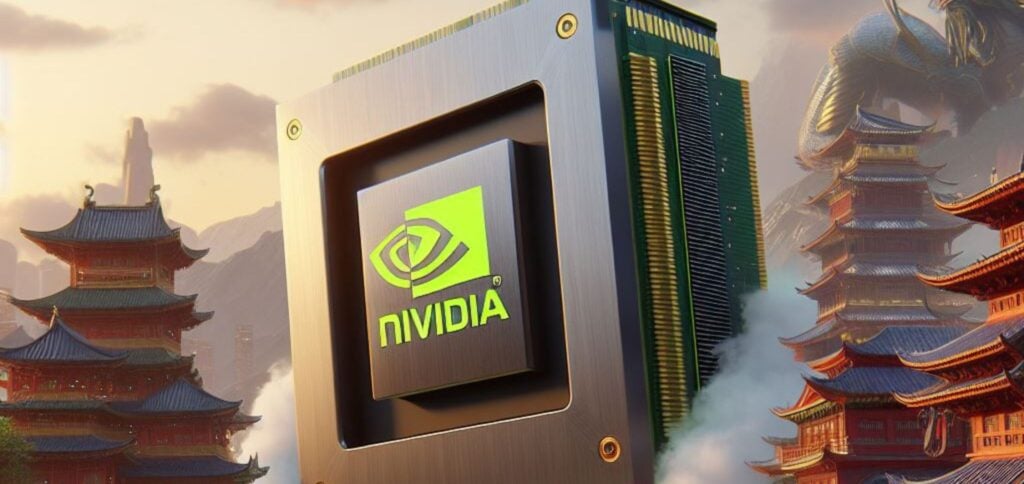The chip artificial intelligence (AI) most advanced of Nvidia – developed for the Chinese market – got off to a weak start, with an abundant supply that forced its price to fall below the Chinese giant's rival chip Huawei, according to sources familiar with the matter.
ADVERTISING
Price stabilization highlights the challenges facing Nvidia's business in China face amid sanctions from USA on AI chip exports and fierce competition, casting doubt on its future in a market that contributed 17% of its revenue in fiscal 2024.
Rising competitive pressure in China also adds a note of caution for investors in the U.S. semiconductor company, whose shares extended an impressive rally following the robust revenue forecast announced on Wednesday. Nvidia, which dominates the artificial intelligence chip market, introduced three chips adapted to China late last year after US sanctions prevented the export of its most advanced semiconductors.
Among these chips, the H20 is the most anticipated, being Nvidia's most powerful product sold in China, but three supply chain sources told Reuters that there is an abundant supply of the chip on the market, signaling weak demand. This resulted in the H20 chips being sold, in some cases, at a discount of more than 10% compared to the Ascend 910B from Huawei – the most powerful AI chip from a Chinese company – two of the three sources told Reuters, asking not to be identified due to the sensitivity of the matter.
ADVERTISING
Analysts said that while Nvidia is striving to capture share in a market it cannot afford to lose, the outlook is increasingly uncertain. China's global share of the AI industry is projected to exceed 30% by 2035, according to a report by Chinese market research firm CCID Consulting.
“Nvidia is walking a fine line and working a balance between maintaining the Chinese market and navigating tensions with the US,” said Hebe Chen, IG market analyst. “Nvidia is definitely preparing for the worst in the long term.”
During Nvidia's first-quarter results on Wednesday, senior executives warned that the company's business in China is "substantially" smaller than in the past due to sanctions. “Our data center revenue in China is down significantly from where it was before the new export control restrictions were imposed in October,” said CFO Colette Kress. “We expect the market in China to remain very competitive in the future.”
ADVERTISING
Analysts said the H20's performance will be an important factor for its business in China, while its long-term prospects will depend on how it competes with domestic tech giant Huawei. A Huawei it only began challenging Nvidia last year and the sources said the Guangdong-based company will drastically increase its shipments of the Ascend 910B chip this year, which the sources say outperforms the H20 in some key metrics. A Huawei did not immediately respond to a request for comment.
In the past six months, just five state-owned or state-affiliated buyers have expressed interest in purchasing H20 chips, compared with more than a dozen for the company's 910B. Huawei over the same period, according to Reuters checks on available government procurement data, which is not exhaustive and may not fully reflect market demand.
Nvidia's H800 and A800 chips are banned in China due to US sanctions aimed at limiting China's capabilities in becoming a technological powerhouse. Its other advanced product lines, including H100 and B100, were also banned. Another major obstacle to the success of Nvidia's H20 chip in China has been a directive from Beijing for companies to buy Chinese chips, although two of the three sources said such orders have slowed in recent months.
ADVERTISING
The H20 became widely available in China last month, with deliveries to customers taking just over a month, the sources said. Some of China's tech giants have already placed orders, with Alibaba ordering more than 30.000 H20 chips, according to two of the sources. Alibaba did not immediately respond to a request for comment.
Server distributors in China are selling the H20 at prices around 100.000 yuan per board, and the eight-board server for around 1,1 million to 1,3 million yuan per server, the sources said. In comparison, distributors are selling the Huawei 910B over 120.000 yuan per board, while its eight-board server equivalent starts at 1,3 to 1,5 million yuan per server. The sources added that prices for both the H20 and 910B Huawei may fluctuate depending on the size of orders placed.
Dylan Patel, founder of the research group SemiAnalysis, said that almost one million H20 chips will be shipped to China in the second half of 2024 and that Nvidia must compete with Huawei in prices. “The H20 costs more to manufacture than an H100 due to its greater memory capacity,” Patel said, adding that it is, however, being sold for half the price of the H100, referring to the powerful Nvidia chip banned from export to China in 2022. “That’s a dramatic drop in margin.”
ADVERTISING
Read also:




